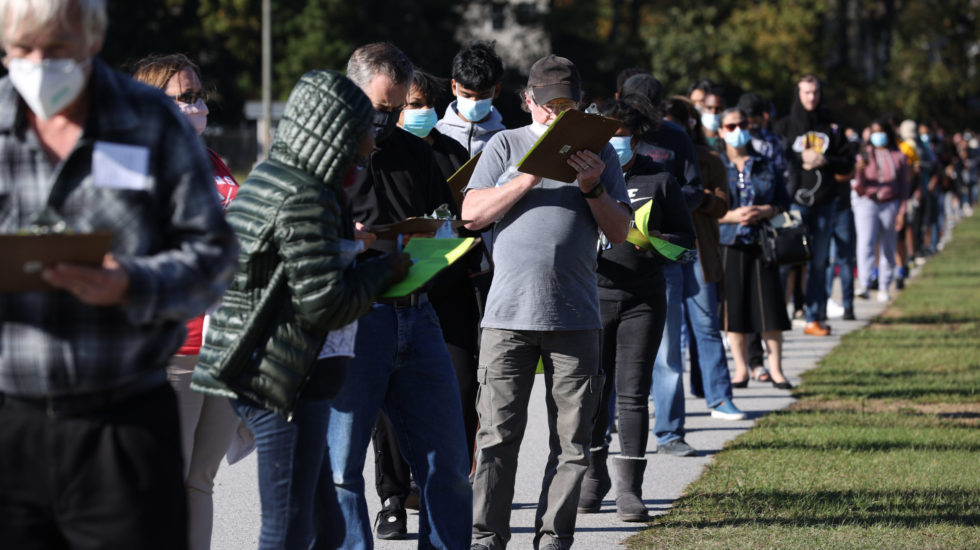No state has transformed national politics in recent years like Georgia. Record turnout in the state, particularly among the heavily Democratic minority community, was the linchpin in securing both a Biden presidency and a Democratic controlled Senate. Now the state’s Republican Party is hellbent on reversing its constituents’ leftward drift. Or rather, the state GOP is trying to make it harder for Black people to vote.
Two bills making their way through Georgia’s state legislature include a bevy of voter suppression measures. The Associated Press reports that House Bill 531 would:
“..require a photo ID for absentee voting, limit the amount of time voters have to request an absentee ballot, restrict where ballot drop boxes could be located and when they could be accessed, and limit early voting hours on weekends, among many other changes.”
Some of the other proposed voter suppression techniques seem plain petty. A provision in one of the bills would make it illegal to provide free food and drink to voters waiting in line at polling locations.
Georgians often wait hours to vote. In both 2018 and 2020, a community group dubbed #ProtestPizzaATL delivered doughnuts, pizza, and snacks to citizens waiting hours to cast their ballots. World Central Kitchen, founded by renowned chef and humanitarian José Andrés, also fed Georgians as they queued to vote.
The New York Times explains the history of voter suppression in Georgia and how it impacts the rest of the country:
For decades, Georgia has been at the center of the voting rights battle, with Democrats and advocacy groups fighting back against repeated efforts to disenfranchise Black voters in the state.
As recently as 2018, Georgians faced hourslong lines to vote in many majority-Black neighborhoods, and thousands of Black voters were purged from the voting rolls before the election. Now Democrats and voting rights groups are alarmed that Republicans are again trying to change the state’s voting laws ahead of critical Senate and governor’s races in 2022.
Stacey Abrams, a former Democratic Representative in the Georgia House, told The New York Times:
“Rather than grappling with whether their ideology is causing them to fail, they are instead relying on what has worked in the past,” Stacey Abrams, the voting rights activist, said, referring to what she said were laws designed to suppress votes. “Instead of winning new voters, you rig the system against their participation, and you steal the right to vote.”
The new Georgia legislation, which its GOP sponsor says is “designed to begin to bring back the confidence of our voters,” resonates with other voter suppression efforts across the country. According to a recent report by the Brennan Center for Justice, there are over 250 bills in 43 states that aim to restrict voting access.
In Iowa, lawmakers have sent the GOP governor a bill cutting back on both early voting and how late the polls stay open on Election Day.
In Pennsylvania, a state representative recently introduced a measure that would end “no-excuses” voting by mail.
And in Arizona, HB 2070 would allow the legislature to appoint its own slate of electors in the Presidential election, thereby overriding the will of the voters.
Earlier this week, the Supreme Court heard a case related to two Arizona election laws. The first penalizes voters who cast ballots in the wrong precinct while the second puts limits on ballot collection. The court’s decision will impact state laws across the country. The Wall Street Journal, covering the Supreme Court arguments, said the court sent “mixed-signals.” A ruling is expected later this year.
